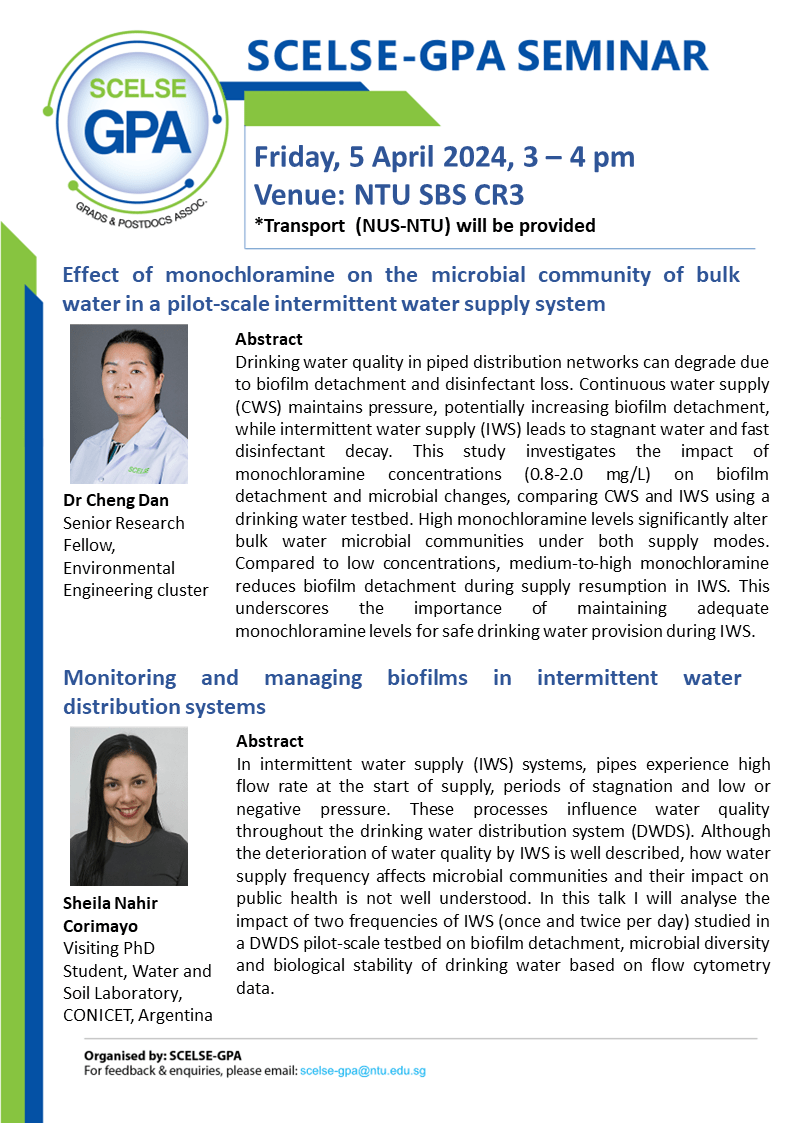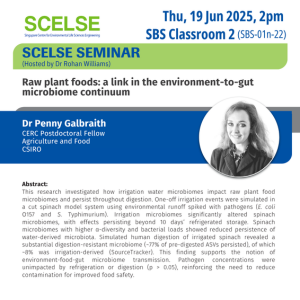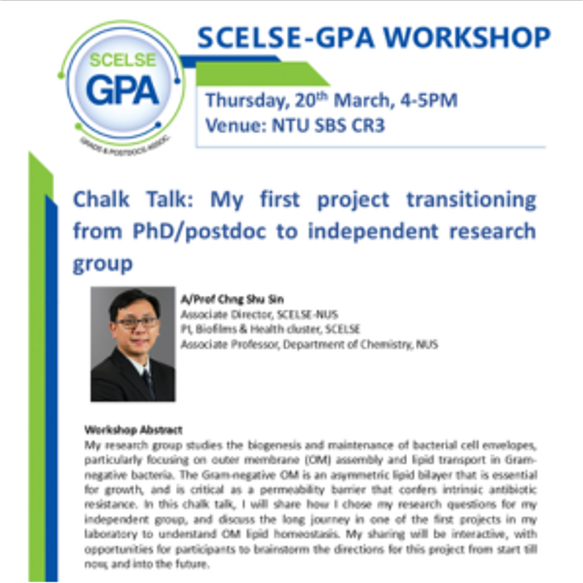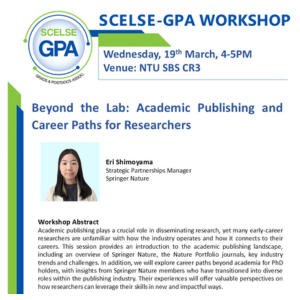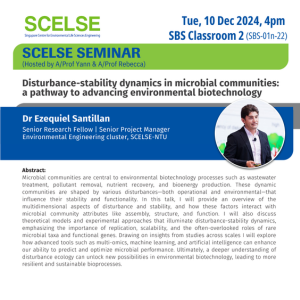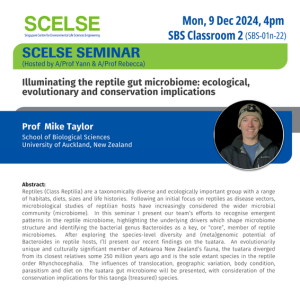SCELSE-Graduates & Postdocs Seminar Series: Microbial communities in drinking water supply systems
Date: Friday, 5 April 2024
Time: 3pm – 4pm
Venue: NTU School of Biological Sciences CR3 (SBS-01N-23)
*Transport (NUS-NTU) will be provided
(GPA Seminars are only open to SCELSE researchers. RAs and interns are also welcome to join.)
TITLE: Effect of monochloramine on the microbial community of bulk water in a pilot-scale intermittent water supply system
SPEAKER: Dr Cheng Dan | Senior Research Fellow | Environmental Engineering cluster, SCELSE
Abstract:
Drinking water quality in piped distribution networks can degrade due to biofilm detachment and disinfectant loss. Continuous water supply (CWS) maintains pressure, potentially increasing biofilm detachment, while intermittent water supply (IWS) leads to stagnant water and fast disinfectant decay. This study investigates the impact of monochloramine concentrations (0.8-2.0 mg/L) on biofilm detachment and microbial changes, comparing CWS and IWS using a drinking water testbed. High monochloramine levels significantly alter bulk water microbial communities under both supply modes. Compared to low concentrations, medium-to-high monochloramine reduces biofilm detachment during supply resumption in IWS. This underscores the importance of maintaining adequate monochloramine levels for safe drinking water provision during IWS.
———————-
TITLE: Monitoring and managing biofilms in intermittent water distribution systems
SPEAKER: Sheila Nahir Corimayo | Visiting PhD Student | Water and Soil Laboratory, CONICET, Argentina
Abstract:
In intermittent water supply (IWS) systems, pipes experience high flow rate at the start of supply, periods of stagnation and low or negative pressure. These processes influence water quality throughout the drinking water distribution system (DWDS). Although the deterioration of water quality by IWS is well described, how water supply frequency affects microbial communities and their impact on public health is not well understood. In this talk I will analyse the impact of two frequencies of IWS (once and twice per day) studied in a DWDS pilot-scale testbed on biofilm detachment, microbial diversity and biological stability of drinking water based on flow cytometry data.
